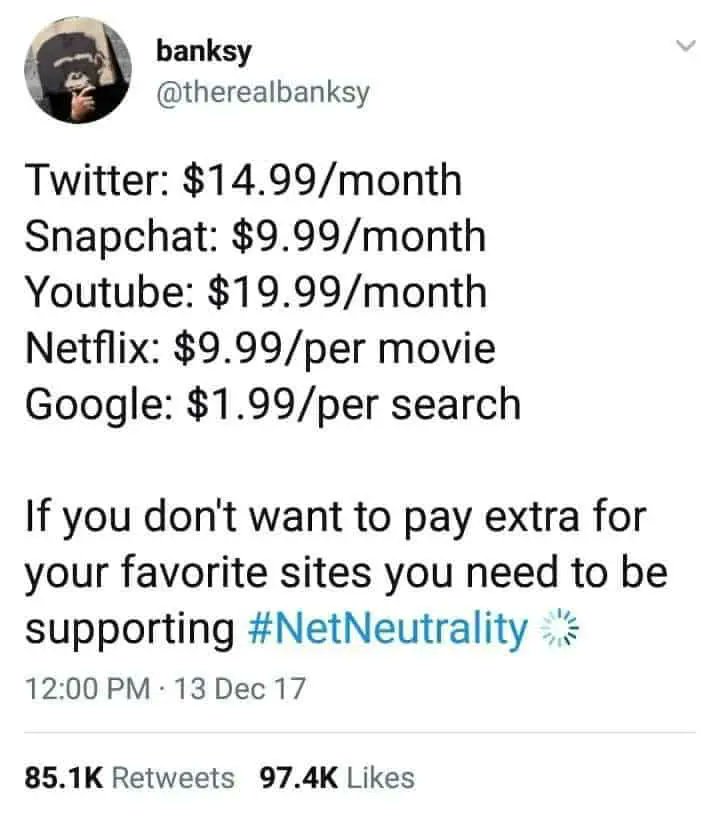Remember that time the end of net neutrality was going to cause “the end of the internet as we know it”? That was awesome
Two years ago this month the FCC repealed the controversial net neutrality rules. At the time, our own Sen. Amy Klobuchar wrote
As a strong supporter of a free and open internet, I am opposed to the Federal Communications Commission’s vote to eliminate net neutrality rules. These important protections prevent internet service providers from blocking, slowing and prioritizing web traffic. This vote will harm consumers, particularly in rural areas. It will limit competition. And it will hurt small business entrepreneurship and innovation. I will continue to push for a free and open internet.
Sen. Bernie Sanders cranked up the hysterics even further…
This is the end of the internet as we know it. In Congress and in the courts we must fight back. #NetNeutrality pic.twitter.com/ExKx7LFZwj
— Bernie Sanders (@SenSanders) December 14, 2017
Mysteriously popular British artist Banksy tweeted
I don’t know about you, but two years on I’m still not paying for my Google searches. The internet is still here. Indeed, as I wrote on this first anniversary of the repeal of net neutrality rules, it has continued improving.
Ditch the hysterics and try discussing things sensibly
The FCC’s net neutrality vote was never a threat to consumers, in rural areas or elsewhere, and it didn’t hurt small business entrepreneurship and innovation, as Sen. Klobuchar warned. It certainly didn’t risk “the end of the internet as we know it”, as Sen. Sanders said. So why did they say that it did?
One possible answer is that they didn’t know any better. American politics gives people power over things they often don’t understand. House Republicans drew laughs with their technologically inept questioning of Google CEO Sundar Pichai, but we should also be laughing at Sen. Klobuchar and Sen. Sanders. We should also question whether bigger government policies – which give ever more power over ever more of American life to people who cannot know enough to exercise it – are actually sensible.
Another possibility is that they did know better but said it anyway. Maybe Sen. Sanders and Sen. Klobuchar did know that the things they were saying were, at best, outrageous exaggerations, but said them anyway to fire up their base. If so, it worked. Like me, you might have seen friends on social media repeating Sen. Sanders’ risible claims.
But at what cost was this temporary enthusiasm bought? Politicians – of whichever party – cannot keep calling things which are not existential threats existential threats. For one thing, people will be less inclined to believe you when a real existential threat comes along. For another, a healthy society and polity cannot survive at that pitch of hysteria.
For the good of the country, calm it down.
John Phelan is an economist at the Center of the American Experiment.
